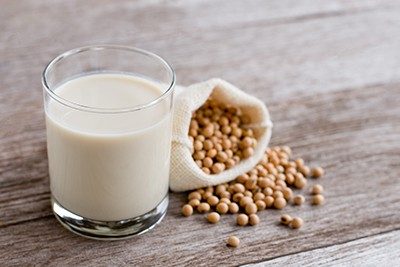FOR IMMEDIATE RELEASE | August 24, 2022
Completing the micronutrient picture for plant-based milk alternatives
CHICAGO, Aug. 24, 2022 — Plant-based milk alternatives are an attractive option for people with allergies or intolerances, or who prefer a dairy-free diet. However, because some essential minerals are required to be included on the Nutrition Facts label only under certain circumstances, consumers might not know if they are meeting their dietary needs. Now, researchers have analyzed plant-based beverages and found variability in mineral content by type and brand. They report that pea-based drinks had the most phosphorus, selenium and zinc, while soy milks had the most magnesium overall.
The researchers will present their results today at the fall meeting of the American Chemical Society (ACS). ACS Fall 2022 is a hybrid meeting being held virtually and in-person Aug. 21–25, with on-demand access available Aug. 26–Sept. 9. The meeting features nearly 11,000 presentations on a wide range of science topics.
“Plant-based milk alternatives have been growing in popularity, but there’s not a lot known about the mineral content of these products, especially in the U.S.,” says Ben Redan, Ph.D., research chemist at the U.S. Food and Drug Administration (FDA), who is the principal investigator on the project. “Although they can be voluntarily declared, from a regulatory perspective, these minerals are not always required to be on the Nutrition Facts label.”
Made from base ingredients such as soy, almonds or oats, these products provide an alternative to dairy milk for people with allergies or intolerances, or who choose dairy-free diets. Although non-dairy options are increasing in variety and availability, the nutritional content of certain minerals in each type largely remains unknown — with dietary health implications for those who use them as a dairy substitute.
Redan and his colleague Lauren Jackson, Ph.D., performed the study, and they are both at the Institute for Food Safety and Health, a research consortium that includes the Illinois Institute of Technology, FDA and the food industry.
Redan and Jackson chose to measure the amount of magnesium, phosphorus, zinc and selenium in plant-based milk alternatives because these essential minerals are not required on the Nutrition Facts label and are components of dairy milk. In fact, dairy milk is a key contributor of these micronutrients in American diets, and people’s bodies can’t make them. Because people must instead consume foods and beverages with these minerals in them, it’s important to know how much is provided by various milk alternatives.
The researchers analyzed a selection of locally available plant-based beverages that were sold under a variety of brand names. Each product was made from a single base ingredient, such as almond, cashew, coconut, hemp, oat, pea, rice or soy. A technique called inductively coupled-mass spectrometry quantified the minerals present in a total of 85 samples. Using statistical analyses, the team found that the mineral content varied significantly across different product types — for example, soy-based versus almond-based drinks — and even between brands of the same type of product. When considering the amount of each specific mineral, they found that pea-based drinks had the most phosphorus, zinc and selenium, while soy drinks had the highest amounts of magnesium, on average.
Of all the samples analyzed, only pea- and soy-based drinks had higher levels of the four essential minerals than cow’s milk, with pea-based drinks containing about 50% higher levels of phosphorus, zinc and selenium. “These plant-based milk alternatives could be important sources of these micronutrients if you’re trying to reach the recommended dietary allowances for them,” Redan says. “That’s why these data points are important to get out to the public.”
In the end, the researchers hope that their data about essential minerals will help consumers make informed dietary decisions about non-dairy plant-based drink products.
The researchers acknowledge support and funding from FDA.
ACS Fall 2022 will be a vaccination-required and mask-recommended event for all attendees, exhibitors, vendors and ACS staff who plan to participate in-person in Chicago. For detailed information about the requirement and all ACS safety measures, please visit the ACS website.
To automatically receive press releases from the American Chemical Society, contact newsroom@acs.org.
Note: ACS does not conduct research, but publishes and publicizes peer-reviewed scientific studies.
Media Contact
ACS Newsroom
newsroom@acs.org


